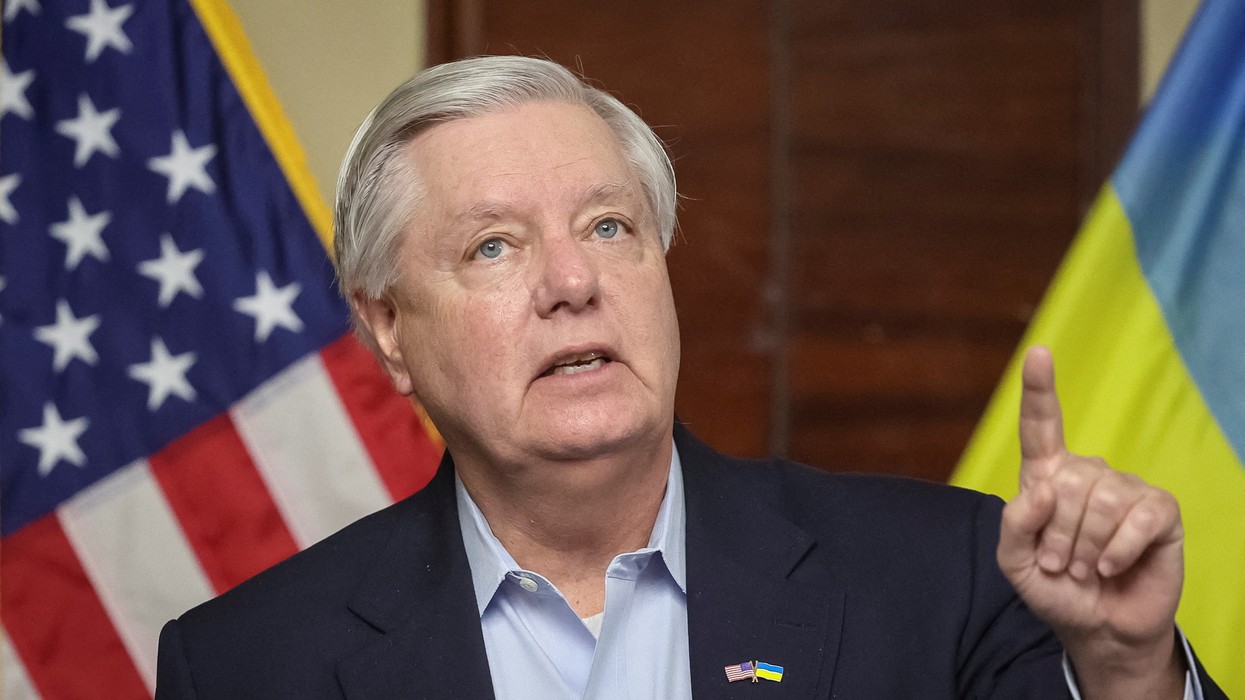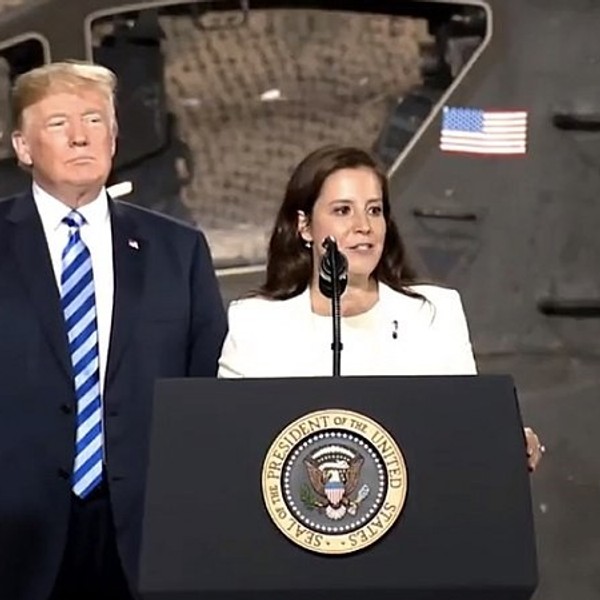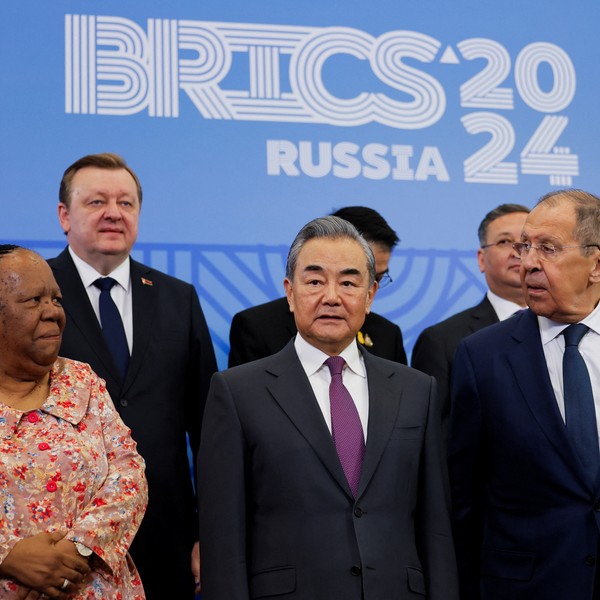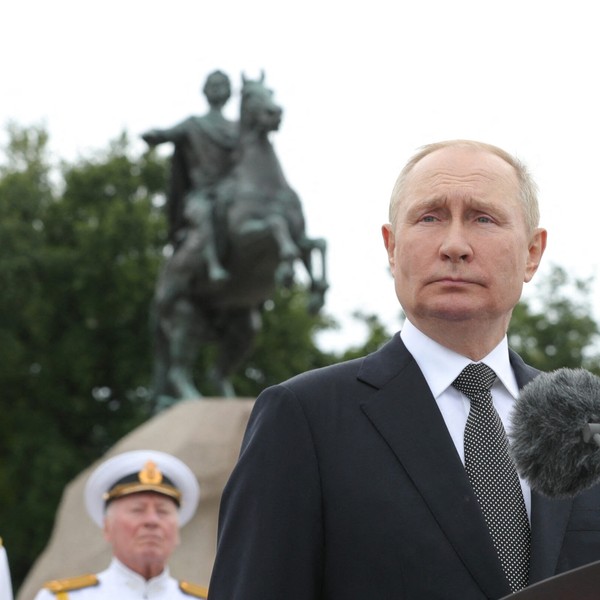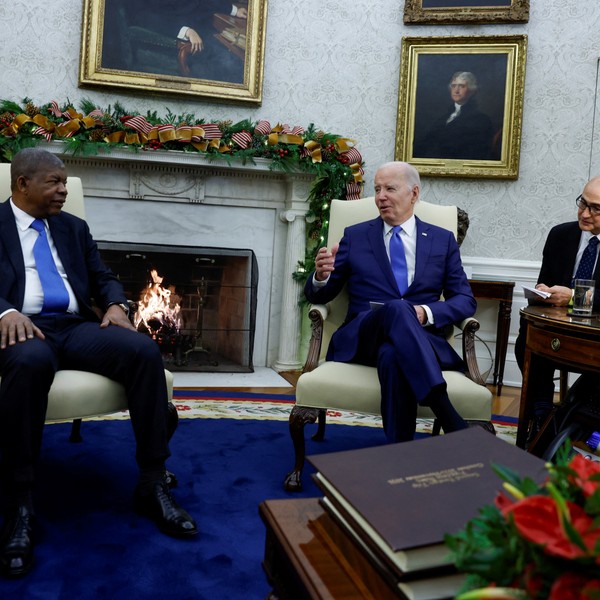The United States is barreling toward another war in the Middle East. The conflict between Israel and Hamas is rapidly escalating across the region and risks dragging the United States directly into the fray.
The recent barrage of ballistic missiles and drones launched by Yemen’s Houthi movement at Israel — coupled with a statement by the group that such attacks will continue — and the continued attacks on U.S. positions in the region show this conflict is expanding fast. The United States now finds itself on a new war footing with Iran and its regional partners, whom many in Congress have cast as part of a new “Axis of Evil” that includes Russia and China.
The Biden administration is preparing for such a scenario, yet adequate measures are not being taken by Washington to prevent such a disaster from transpiring. Fear among the American public that the United States will be dragged into another Middle East war is rising fast: according to a recent Quinnipiac poll, 84% of respondents were either “very” or “somewhat” concerned that the U.S. could be drawn into the conflict.
President Biden and his team have repeatedly warned Israel against making the same “mistakes” the United States made following September 11, 2001, but it would appear Washington has yet to learn from our own errors of the past two decades.
If the administration does not want to enter another war in the Middle East, it needs to prevent the conflict from pulling in additional actors from across the region. The way the war is being fought at present seems to make that outcome more likely, not less.
Following Hamas’s terror attack on Israel on October 7, the United States significantly increased its military presence in the Middle East in hopes of deterring a broader regional conflict. The United States deployed two aircraft carrier strike groups, with roughly 7,500 personnel on each, two guided-missile destroyers, and nine air squadrons to the Eastern Mediterranean and Red Sea region. Washington also deployed an additional 4,000 troops to the region, with another 2,000 on standby, adding to the roughly 30,000 troops already in the region.
This buildup comes as the conflict is escalating considerably. Over 1,500 Israelis and more than 9,770 Palestinians have died as a result of the war. The situation inside Gaza is dire, with over one million displaced and thousands in desperate need of humanitarian assistance. In the West Bank, violence has also been escalating, with an estimated 152 Palestinians killed by Israeli settlers and soldiers since the war began, resulting in the United States calling on Israel to “protect Palestinians from Israeli extremist settler violence.”
Outside of the war itself, violence is increasing throughout the region. U.S. forces in the Middle East have already been targeted at least 23 times in Iraq and Syria by groups connected to Iran. In response, U.S. forces conducted airstrikes on two facilities linked to the Iranian Revolutionary Guards Corps (IRGC) in Syria, while vowing to retaliate further if the targeting of U.S. personnel continues. Israel and Hezbollah continue to engage in clashes, with almost 50 Hezbollah fighters killed since October 7.
Hezbollah’s leader, Hassan Nasrallah, delivered his first public address since the start of the war on Friday Nov. 3, where he stressed the independent decision-making of Hamas in launching its attack on Israel while also pressing for an end to the conflict, but maintained that a region-wide war remains possible. Nasrallah also praised Yemen’s Houthis for getting involved. Following the latest barrage of ballistic missiles and drones, the Houthis have now targeted Israel three times since the war began. Israel has also continued to strike Iran-backed militias in Syria following the outbreak of war in Gaza.
The Biden administration needs to square up to the fact that a broader war in the Middle East would be ruinous for the United States and the region.
Given the relative military weakness of America’s regional partners — with the exception of Israel, who would nonetheless be overextended in such a scenario — the United States would have to do the lion’s share of the fighting and would bear the majority of its costs. Such a war would result in dramatic new levels of U.S. commitments and entanglements in the region at a time when the Middle East no longer represents a core theater of U.S. interests.
The risk of a major war in the Middle East comes as the United States is already deeply engaged in assisting Ukraine against Russia’s invasion and trying to deter China in the Indo-Pacific, while carrying a national debt north of $33 trillion and running $1 trillion-plus budget deficits each year in peacetime. Opening a new front in the Middle East while trying to pursue Washington’s stated interests in Europe and the Indo-Pacific risks plunging America toward an economic crisis.
It goes without saying that for the Middle East itself, such a war would be catastrophic, destabilizing the region politically, economically, and militarily. The war would threaten to empower illiberal actors across the region at the expense of genuine stability. The profound human and material costs would plague the Middle East for generations to come.
It should be clear from the past several decades that throwing money, weapons and military assets at the region often has profound negative consequences. In this case, Washington is risking further escalation and even direct U.S. involvement in a region-wide war.
Biden needs to make clear that the central U.S. interest is to stay out of the revolving door of Middle East conflicts and avoid being dragged into a ruinous military campaign across the region.
- The United States, China, and great power competition in the Middle East ›
- Tracking the US military build-up today in the Middle East ›
- Is this the Middle East escalation we've have been fearing? - Responsible Statecraft ›
- Is Hezbollah ready to deal with Israel? | Responsible Statecraft ›
- Dem, GOP Lawmakers say Biden had no authority to launch Yemen strikes | Responsible Statecraft ›
- US strikes on Yemen won't solve anything | Responsible Statecraft ›
- First lethal blows, but still no unified call for war in Congress | Responsible Statecraft ›
- Hamas's allies expose limits and liabilities of US power | Responsible Statecraft ›
- Is Israel's plan to draw the US into a war with Iran? | Responsible Statecraft ›
- Weapons stocks blast off as bombs drop, troops invade Lebanon | Responsible Statecraft ›



